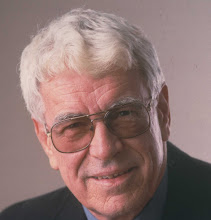August 24, 2008
Maybe there's something else out there as vile as racism, but I can't think what it would be. I have just read Lawrence Hill's magnificent, heartbreaking novel The Book of Negroes, and I am filled with horror, wonder and fury.
Horror at Hill's crackling account of the unspeakable violence of being abducted and enslaved. Wonder that people can go through the hellfire of slavery and emerge with their minds intact and their hearts still warm. And fury at the persistence of racism, whose heat still scorches us all.
The Book of Negroes is the story of Aminata Diallo, a girl of 11 captured by slavers who murder her parents. After walking three months to the coast, Aminata is bundled onto a reeking slave ship and sold to a South Carolina plantation, then to a Charleston businessman. Escaping while visiting New York, she emigrates to Nova Scotia as a Black Loyalist, emigrates again to Sierra Leone, and ends her life in London as a living witness for abolitionists working to end the slave trade.
But that bare outline does not begin to describe the violence that Aminata endures. She is beaten and raped. Her husband repeatedly finds her and is torn from her. Both her children are ripped away. Equally painful is the cultural and psychological violence that she and her fellow-slaves suffer. Africans from dozens of different nations are tumbled together -- Igbo, Ashanti, Yoruba, Fulani, Mende and many others – so that they are all isolated, unable even to speak to one another. It's as though someone had captured Finns, Scots, Basques and Greeks, and lumped them all together as “Europas.”
Nor are the Africans permitted to generate a new identity. They are forbidden to learn, teach, read or write. They develop two languages:Gullah, which they speak among themselves, and a form of English to use with the “buckra,” the white people.
This robbery of culture and identity is not accidental, argues an unnamed writer on a website called AfricanDNA.com:
“Slave owners wanted our ancestors to think of themselves as nameless objects of property, plain and simple, like a chicken or a cow,” s/he writes. “I am convinced that this still impacts our people today, crippling our ability to know ourselves by connecting with our family's past.... We have internalized generations of doubt and fears about who we are as a people and what we can accomplish, just as White racists wanted us to do. And we continue to pay a terrible price for this.”
Yes, exactly. Many of Aminata's companions go mad, or kill themselves. No wonder that the effects of this horrific experience linger on. Afro-American slavery dates from the same period as the Highland Clearances, the deportation of the Acadians and the decimation of the Mi'kmaq. If the rest of us still feel the sufferings of our ancestors, how can we fail to weep at the anguish of the Africans?
But we do fail, to our enduring shame. Stories of racism bubble up in this newspaper almost on a daily basis: slurs in Digby, teenage battles in Cole Harbour, constant harassment for the offence known to black people as “DWB” – Driving While Black.
So it is no surprise that Aminata's experience during eight years in Birchtown, Nova Scotia is one of exclusion, poverty, broken promises and lethal violence. And it is no surprise that she chooses to emigrate again to the new free colony on the Sierra Leone River – the very river where she was branded with a red-hot iron and thrust aboard a stinking slave ship 40-odd years before.
The Book of Negroes is hard, vivid and unsentimental, and Aminata is not a soft character. Though she is capable of great love, she is also tart and clear-sighted, shrewd and cunning. Her salvation is her adaptability, her skill as a midwife and her love for languages, which repeatedly allows her to eavesdrop on people who think she cannot understand them.
As a child, she learns a bit of reading from her father, whose copy of the Qu'ran is the village's only book. Although she is a girl, she yearns to be a djeli – a village storyteller, a recorder, a magician who conjures with language. And she knows that in the end, her words are the tools to give meaning to her life of loss and pain.
“I have long loved the written word, and come to see in it the power of the sleeping lion,” she writes. “I will write down my story so that it waits like a restful beast with lungs breathing and heart beating.” Someday, “one of these people will find my story and pass it along. And then, I believe, I will have lived for a reason.”
-- 30 --
Sunday, September 7, 2008
Subscribe to:
Post Comments (Atom)

No comments:
Post a Comment